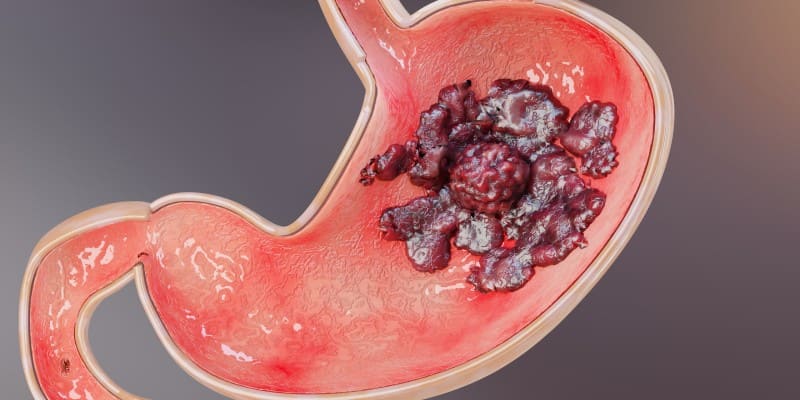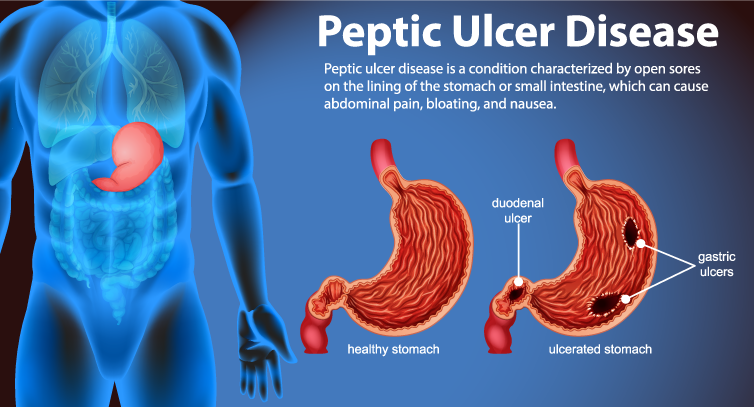Peptic ulcers are open stores that develop on the inside lining of the stomach, especially on the lesser curvature. Within the antrum and the upper portion of the small intestine i.e. Duodenum. Homeopathic Remedies For Peptic Ulcer is very helpful. Generally, the ulcers in the stomach / Duodenum may be acute/chronic in presentation. In cases of chronic peptic ulcer, there is Penetration and fibrosis of the stomach layer muscular mucous. Homeopathic Remedies For Peptic Ulcer are mentioned in this article so read carefully. Let’s discuss about What is Peptic Ulcer? Peptic ulcers are classified into two types:
- Gastric Ulcer
- Duodenal Ulcer
What is Peptic Ulcer
What is Peptic Ulcer? So friends, The term Peptic/Stomach ulcer refers to an ulcer in the lower oesophagus, stomach or duodenum, in the jejunum after surgical anastomosis to the stomach or rarely in the ileum adjacent to a Meckel’s Diverticulum. May people don’t knows the What is Peptic Ulcer. So, The Peptic/Stomach Ulcers are strongly associated with “H.pylori infection”.
Around 90% of duodenal ulcer patients and 70% of gastric ulcer patients are infected with H.Pylori. Another important cause for the remaining 30% of gastric ulcers is caused by NSAIDs i.e. North Anti-inflammatory drugs (Pain Killers) as they reduce the mucosal defence of the stomach mucosa.
Smoking confers an increased risk of gastric ulcer and to a lesser extent, duodenal ulcer. In most people, H.pylori causes localised antral gastritis associated with the depletion of somatostatin from D-cells and increased gastrin release from G-cells. This stimulates increased acid production by parietal Cells. Hypylori causes pangastritis which leads to gastric atrophy and hypochlorhydria. This is all about What is Peptic Ulcer.

Peptic ulcers are of 2 types
1)Gastric Ulcer:
Gastric ulcers are the ones that are inside the stomach.
2)DUODENAL ULCERS:-
Duodenal ulcers are those that occur on the inside of the upper portion of the small intestine. i.e. Duodenum.
Causes of Peptic Ulcers
Ulcers are formed when hypersecretion and then the gastric acidic juices are they damage the walls of the stomach or duodenum/small intestine. Following are the Causes of Peptic Ulcer:
Major causes of Stronach / Peptic ulcers:
- Bacterial Infection:
When we suffer from a bacterial infection bacteria called as H.PYLORI it raises the amount of gastric acid secretion & and damages the protective mucus layers of the stomach. You may get H pylori infection from ulcers & unhygenic food & Water.
- NSAIDS/Pain relievers or fever killers:
Modern medicine drugs like ASPIRIN TBUPROFEN NAPROXEN, DICLOFENAC INDOMETHACCN etc. are more likely to cause a peptic ulcer if taken regularly for years.
NSAIDS chemicals block the stomach walls from making a chemical that helps & and protects the inner walls of your stomach and small intestine from the acids
- SMOKING & DRINKING ALCOHOL
Smoking tobacco cigarettes and drinking alcohol on a daily basis can lead to chronic peptic ulcers down the years.
- Family History of Peptic Ulcer
Minor Causes:
- Stress.
- After being seriously ill from various infectious diseases.
- Spicy Food.
- After Surgery.
- Heavy doses of corticosteroids.
What are the symptoms of Peptic Ulcer
The most common presenting symptoms are recurrent burning abdominal/stomach pain, especially in the epigastric region. Occasionally there will be anorexia, Naused & vomiting. The feeling of fullness, easily satiety after meals, bloating belching, Heartburn and Nausea. Here is the answer of the question What are the symptoms of Peptic Ulcer.
- There is intolerance to fatty foods.
- Burring epigastric abdominal /stomach pain.
- Nausea vomiting, Hematemesis, waterish.
- Bloating, Belching, Regurgitation, Heartburn Burping
- Fullness feeding Farly satiety after meals.
- Intolerance to fatty foods.
- Change in Appetite, lack of weight.
- Vomiting of blood
- Black/Brownish-red colour stools.
- You’ll most likely feel epigastric region a burning pain sensation more often on an empty stomach and eating might reduce the pain for a while.
- There is episodic occurence of pain and it may last. For a few minutes/hours and may reoccur after days. weeks & months.
DIAGNOSIS OF STOMACH ULCERS
Your doctor will ask you about your complaints and symptoms you are suffering from. A detailed case history is taken to redify whether. you have a History of large dosages of NSAIDS of any bacterial infection etc. The only way to diagnose a case of peptic ulcer is through a thorough medical history and some critical investigations like ENDOSCOPY, BIOPSY if needed.
In ENDOSCOPY the doctor passes a thin, bendy tube down the throat Into your stomach & small intestine the tube has a camera and this helps in checking the as well as location of the ulcer in the stomach Intestine. Diagnostic and non-invasive tests are also done to confirm.
H.pylori infection like C-urea breath test, faecal antigen test and some blood tests to screen the presence of the bacteria in the body.. The doctor may also suggest a BARIUM SWALLOW and perform a series of x-rays of your upper digestive system the oesophagus, and the stomach, small intestine for the diagnosis of stomach / Peptic ulcer. What is the difference between a peptic ulcer and a gastric ulcer is mentioned below.
Homeopathic Remedies For Peptic Ulcer
- Phosphorous
- Argentum Nitricum
- Arsenic.
- Lycopodium.
- Condurango.
- Natrun Phos
- Nux Vomica
- Kali Bichrome
- Carbo-veg
- Hydrastis
What is the difference between a peptic ulcer and a gastric ulcer
| Characteristics | Peptic Ulcer | Gastric Ulcer |
| Location | can develop in the duodenum, which is the initial portion of the small intestine, or the stomach (gastric ulcer). | especially found in the lining of the stomach. |
| Causes | Chronic use of nonsteroidal anti-inflammatory medications (NSAIDs), stress, smoking, drinking alcohol, and Helicobacter pylori infection | Similar causes of peptic ulcers include NSAID use and H. pylori infection |
| Symptoms | A burning sensation between the navel and the breastbone in the belly, Bloating, nausea, vomiting, and belching (which may contain blood) | Upper abdominal pain or discomfort, usually after eating vomiting and nausea (which may contain blood) |
| Diagonisis | Upper gastrointestinal (GI) series, endoscopy (direct visualisation of the ulcer), and biopsy H. pylori tests on the breath, blood, or stool. | The same diagnostic techniques, such as endoscopy and biopsy, as for peptic ulcers |
| Treatment | H. pylori eradication with antibiotics, antacids, proton pump inhibitors, H2 blockers, and other acid-suppressing drugs Modifications to lifestyle (such as giving up alcohol and NSAIDs, or quitting smoking). | The same range of treatments available for peptic ulcers, such as antacids, antibiotics, drugs that reduce the stomach acid, and lifestyle modifications |
FAQ’s
Can peptic ulcer be cured with homeopathy?
How many days it will take to cure peptic ulcer?
What is the difference between the two types of ulcers?
READ MORE

